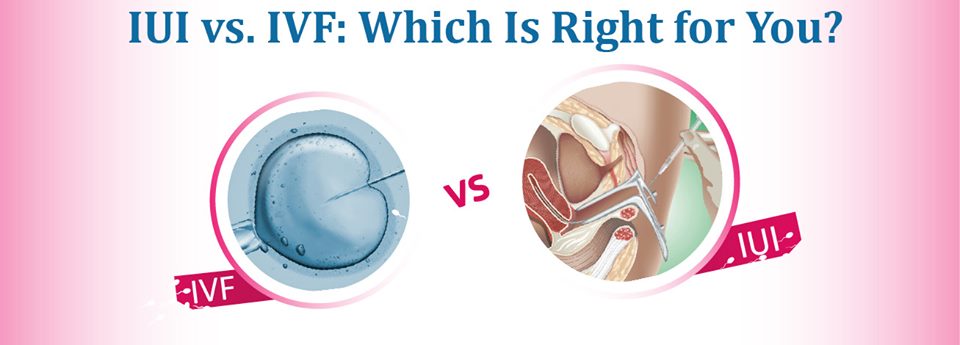
Couples who are having trouble conceiving may be wondering if they should undergo fertility treatments and what type of treatment they would be candidates for.
Two procedures are commonly used to help couples who need fertility assistance:
Through intrauterine insemination (IUI), sperm is placed directly into the uterus using a speculum.
Through In-vitro fertilization (IVF), eggs are surgically removed using a needle that goes through the back of the vagina, and those eggs are fertilized outside of the body.
Our fertility specialist will run some tests and then advise you on potential treatment options based on the results of those tests. Our fertility specialist can also provide you with an estimated chance of conception success, either naturally or with each type of treatment.
There are key differences between IUI and IVF treatment. Comparing both options can help you determine which approach might be best for you and your partner.
IUI’s May Be Less Invasive, More Natural
Couples with infertility often start treatment with IUI, which is much less invasive than IVF. IUI involves placing a washed sperm directly into the woman’s uterus during the fertile window. This can be done as part of a natural cycle or, more often, in combination with medications (like clomiphene citrate or letrozole).
The washed sperm sample will contain more motile sperm, which are more likely to fertilize an egg. Additionally, placing sperm directly into the uterus means they do not need to “swim” as far to reach their target.
In addition to helping couples with infertility challenges, IUI can be useful for couples who are having trouble conceiving for other reasons, such as their work or travel schedule, or sexual dysfunction.
It is important to note that many women undergoing IUI are given hormones or medication in order to induce ovulation or to increase the number of eggs that are ovulated each month. This increases a couple’s chances of having twins or multiples. Although many couples undergoing fertility treatment welcome the idea of having twins or even more babies, in reality, having multiples will introduce complications for the mother and the babies.
Reasons to Pursue IVF
IUI can be a good starting point for couples facing issues involving ovulation or unexplained infertility. However, IUI may not be the most suitable fertility treatment for a couple.
IVF is usually recommended for couples facing the following situations:
Severe male infertility
Blocked fallopian tubes
Lack of success using IUI
Concern about passing on certain genetic disorders
Pre-implantation genetic testing is an advanced scientific procedure that can be performed before IVF. This may be beneficial for patients who have concerns about a genetic condition or who have had multiple unsuccessful IUI cycles or miscarriages. This procedure can be used to identify genetic disorders or chromosomal abnormalities in embryos, and can help identify the best embryo to transfer.
Which Approach Is Best?
Every patient and every situation is different, so you should meet with a fertility specialist to review your history and to discuss a recommended course of action. Infertility is not uncommon, and regardless of age, couples are encouraged to seek help sooner rather than later.
To learn more about fertility treatment and your options, visit www.ivffertility.com.my
